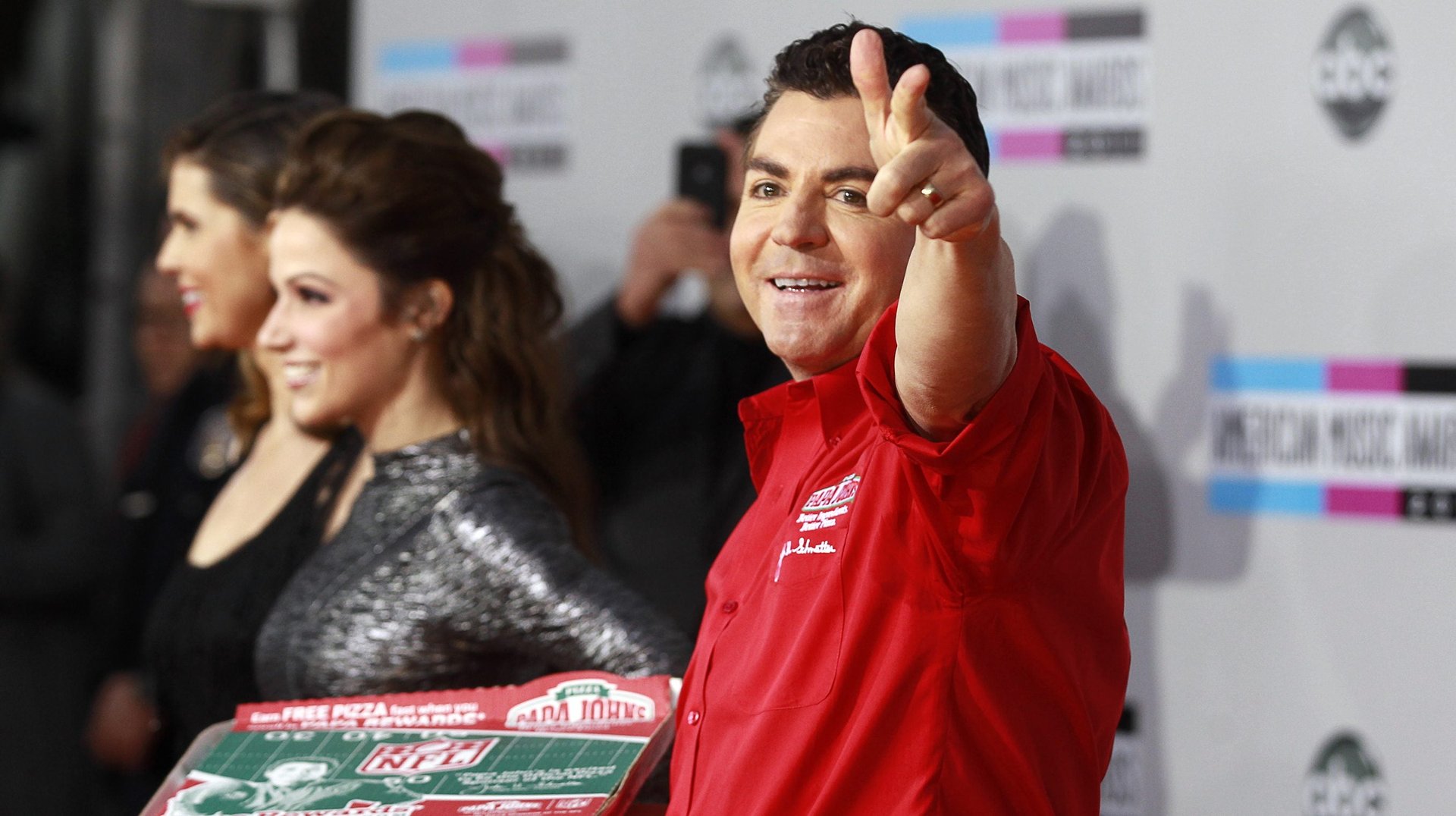Papa John is no longer CEO because he didn’t learn the lessons of Patagonia
The papa of Papa John’s is out.


The papa of Papa John’s is out.
John Schnatter, founder of the pizza maker and the John in its name, is stepping down as CEO, the company announced yesterday (December 21), just weeks following a public relations disaster in which Schnatter criticized the NFL for not dealing with the “take a knee” anthem protests in a manner timely enough to shore up its shrinking, potentially pizza-ordering viewership.
In an interview with the Wall Street Journal (paywall), Steve Richie, incoming chief executive and former COO, declined to comment on whether bad press was part of the decision to have Schnatter step down, but he did say the PR crises have been a distraction, and that he wants to put the focus back on Papa John’s employees and its pizza. Schnatter will remain the company’s chairman.
In a third-quarter earnings call Nov. 1, Schnatter said the protests—which are meant to call attention to police brutality against African Americans and support racial equality— “should have been nipped in the bud a year and a half ago,” implying they were behind lower ratings for NFL games (they probably weren’t), for which Papa John’s was a sponsor and advertiser. Although his comments were widely criticized, they also found fans in the neo-nazi media outlet Daily Stormer, which suggested Papa John’s was the official pizza of the alt-right. The company’s immediate backpedaling and condemnation for racist groups were apparently not enough to save Schnatter’s job.
Meanwhile, another household brand waded into politics with far more successful results this month. Patagonia, the maker of outdoor and sports clothing, boldly turned its website’s landing page into a political campaign in early December, pushing e-commerce to the side for the sake of a statement about the federal government’s cutting back of protected lands at Bears Ears and Grand Staircase-Escalante national monuments. “The President Stole Your Land” the website screamed in large text. The company also filed a lawsuit against the Trump administration for its actions.
The result? Sales surged to six times their typical level that day (December 5) and fans urged others to buy all their holiday gifts from the retailer.
Progressive consumers might like to believe that it’s progressive politics that make the difference, and there are reasons to believe that’s true. Why else would Chick-fil-A need to distance itself from the anti-gay rights beliefs of its Christian founders when it went national, and moved beyond the niche following it cultivated in southern states.
On Twitter, political journalist Joy Reid noted that other companies have run up against this hurdle:
What also matters, it seems, is making your political voice a part of the company’s strategy, not ad hoc sounding off. At Patagonia, environmental “activism”—however cynical you want to be about it—has long been a part of its core mission. That they’ve made the strategy work proves that Patagonia knows who its customers are, or at least who they aspire to be.
Schnatter, by contrast, simply threw a few wild punches at one of the country’s most powerful institutions, making a vague political statement along the way. But at least during that earnings calls he left the press with a deliciously ironic quote in his almost-final public words as CEO: “Leadership starts at the top, and this is an example of poor leadership.”